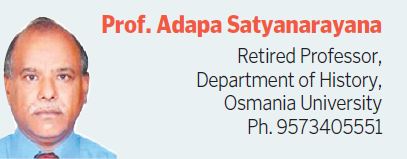Blatant breaching of Gentleman’s Agreement
In lieu of the merger, certain safeguards were extended to the people of Telangana.
Published Date - 12 September 2022, 11:21 PM
Hyderabad: This article is in continuation to the last article focusing on the Jai Telangana Movement (1969-70), which is one of the important topics for the government recruitment examinations.
The Andhra leaders exerted undue pressure on the top brass of the Congress Party on one hand and offered many other promises to the Telangana people on the other hand. GB Pant was the Home Minister then, and he convened a meeting of Andhra and Telangana leaders in New Delhi to arrive at a consensus. The Telangana leaders were persuaded to agree for the merger.
In lieu of the merger, certain safeguards were extended to the people of Telangana. As a consequence, the merger of Telangana with Andhra State was finalised on the basis of a 14-point agreement embodying the safeguards to Telangana people. This agreement was reached on February 20, 1956, and the agreement is popularly referred to as “Gentlemen’s Agreement”.
Violations of Agreement
It was a classic case of manipulative politics triumphing over the will of the people of Telangana. The episode after signing of the Gentlemen’s Agreement is a long sad story of violations and dishonouring. Since the formation of Andhra Pradesh State, as the things unfolded, not only were the assurances contemptuously breached but even the resources of Telangana were diverted to other parts of the State.
The business-minded people having entrepreneurial spirit belonging to Andhra region aimed at “plundering” Telangana as an area and its people as human labour for their advantage and prosperity. The Telangana people were treated as “second class citizens” on their own soil. The Telangana leaders were mistreated not only when they were alive but also after they died.
When Prakasam Pantulu, the former Chief Minister of Andhra State died, his dead body was cremated as per the protocol and he was given a State Funeral. The same honour was denied to Burgula Ramakrishna Rao, the then Chief Minister of Hyderabad State who also served as Governor for two States, first as the Governor of Kerala and then as the Governor of the biggest State in India — Uttar Pradesh.
Nearly 40 per cent of the total population of Andhra Pradesh was living in Telangana, an area that amounts to over 45,000 square miles that was equal to 42 per cent of the total area of the State and almost 45 per cent of the total State’s revenue income was from Telangana. There were many and major infringements of the Gentlemen’s Agreement and even the then Prime Minister Jawaharlal Nehru failed to do anything to protect and implement the safeguards tendered in the Agreement.
Konda Laxman Bapuji was a Minister in the Andhra Pradesh Government. He resigned from the Cabinet that was headed by Kasu Brahmananda Reddy as a protest against the violations and breaches in the implementation of the Gentlemen’s Agreement. He enumerated several injustices that the Telangana people were subjected to over a period of 12 years in a long letter (which was written in Telugu) addressed to the then Chief Minister while quitting as the Minister.
To be continued…
